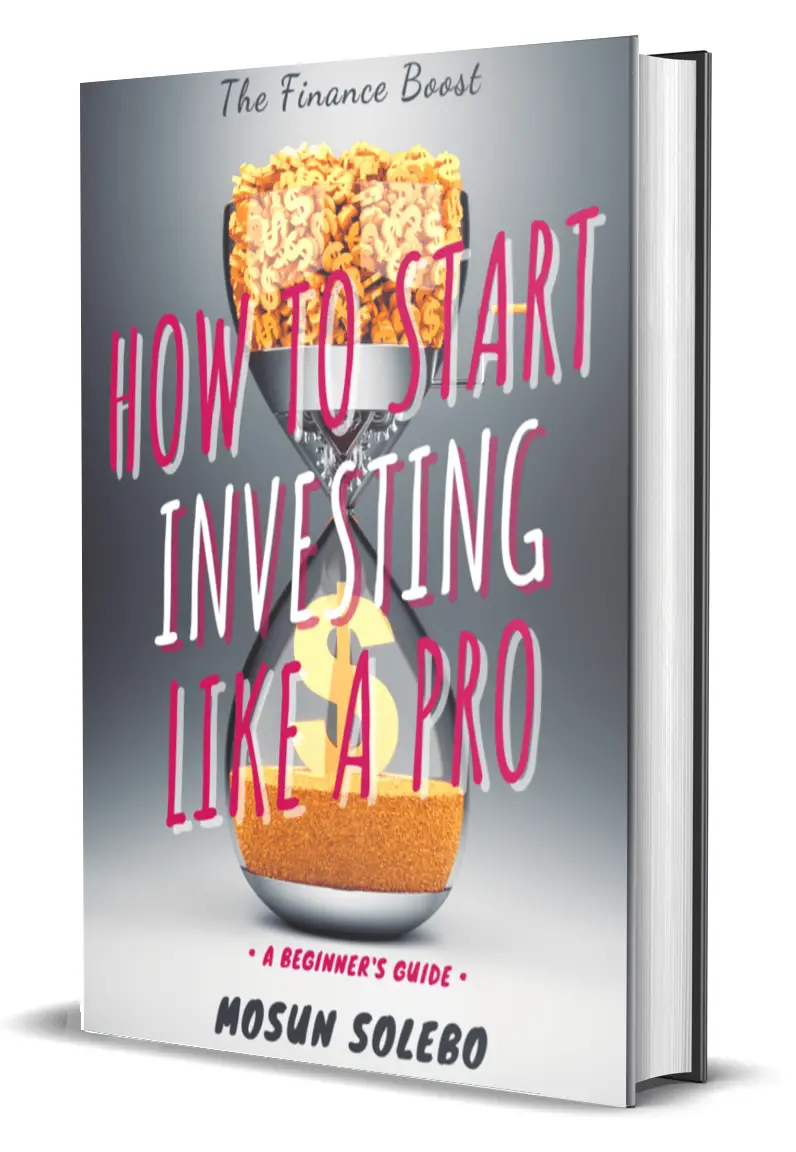These are the 10 Easy and Practical Budgeting Tips and Tricks for young adults to manage finances better.
So, no one told you life was going to be this way, huh? I know it sounds like an opening line from a song but, seriously, as a young adult trying to survive in this dog-eat-dog world, your finances could be at the bottom of your list.

It shouldn’t be the case, though. Most of the time, youth is underrated.
And so you’re young, wild, and free. You may be thinking like this: “I graduated college; I can do whatever I want,” “Who needs insurance and savings? I’ll save later for retirement,” I’m too young and healthy to concern myself with matters like that.”
If this is your mindset or one of your friend’s, you’re asking for real trouble, honey.
The reality is, most young adults struggle with money because they were never taught how to manage it. Well, except you were fortunate enough to have your parents teach you about the importance of managing your money or were able to take some personal finance courses in school. If that’s your case, then you’re off to a great start.
However, a recent Federal Reserve report found that nearly a quarter of U.S. adults have no retirement savings or pension. Even though the level of preparation increases as people get older, concern about inadequate savings is still readily apparent across all age groups, even more, seniors in their 60s.
So, whether you’re a fresh grad or already working but always get broke, these concrete and super easy budgeting tips will help you live your best life and become financially independent.
Related:
How To Stop Living From Paycheck to Paycheck
Tip #1- Make a BUDGET
Creating a personal budget is one crucial foundation never to go broke. I know many people get an allergic reaction to the term but, you can creatively rename the word “budget” for the sake of managing your finances. I want to call mine “my game plan.”
Besides, creating a budget doesn’t mean restricting yourself from all the pleasures of the world. Your budget can help you track your spending and see where every dollar goes. It plays a vital role in accomplishing your financial goals. You should set one of those goals, either for a new house, a large purchase, or a grand vacation; a BUDGET will go a long way.
For starters, ask yourself. Where do I want to see myself financially five years from now? What are your goals and plans? If you don’t have a budget, well, you need one right now.
Related:
How to Budget and Save Money to Transform your Finances
Tip #2- Live within your means
You might also hear of this often, but you should take it seriously. To live within your means generally pertains to your lifestyle. It would help if you spent less than you earn. And, if you do otherwise, you’re bound to go financially broke.
Living within your means will bring you inner peace; you’ll spend your money on real needs, avoid or have less debt, and handle your money wisely.
Young adults are likely to keep up with the Joneses or even with the Kardashians – which is one great example of how you can mismanage your money. Moreover, social media contributes to this fad, so don’t believe everything social media tells you. People want to show only what they want other people to see, and there’s nothing wrong with that, but don’t get misled.
Likewise, being on a budget and living within your means should not be a shame for you because that only means you know your priorities. Stop trying to keep up with whatever is latest or new. It’s okay if you can’t afford it for now.
Besides, isn’t it nice to purchase an item that is hard-earned and was saved for? And, you’re benefiting from delayed gratification because, after some time, you’ll know whether you really need an item or not.
Related:
The 30-Day Savings Rule – Easy Step by Step Guide to Save More Money
How to Save Money Every Month – 9 Simple Steps to Start Saving
Tip #3- Keep your Credit Score High
Good credit can save you a lot of money, so keep your score high. You might as well maintain your credit history while you are young to help you get better deals in the future.
Keeping your credit score high will allow you to get better rates on mortgages, car loans, credit cards, personal loans, and more when the time comes. Banks will lend you a generous amount, knowing you have a good record, and it will be easy to get approved.
Similarly, it very important to check your credit report every once in a while. You can check your credit score as often as you’d like with credit monitoring apps like credit karma, budgeting apps like Mint, or your personal banking app.
Who knows, there might be identity theft, and you have no idea someone has used your information to take out a loan, open a credit card, or create other debts. So, stay on top of your credit report
Do not assume you have good credit just because you make your payments on time or don’t have a bunch of debt. It’s recommended to check your credit score regularly and your full credit report annually or every six months.
Tip #4- Only Take on Smart Debt
Another valuable tip is to never believe in sales and discounts- when the time is not right for you. It’s how impulsive buying happens. You see an item for sale, feel the urge to buy it, and you’re in bliss temporarily when you buy it. But you end up paying for it for several years.
Take, for example, a store card, which can save you 10% off your purchases. Although initially, it sounds good, over time, you keep going back to the store to buy more stuff because you’re buying on credit and become comfortable with the discount offers.
What you don’t know is that the debt will keep piling on until you reach a point where you have to make monthly payments for a long time to pay it off. Do you really want to pay that long for cereal and clothing?
That’s why you have to focus on smart debt instead. You may find that a mortgage or student loan may not be as horrible as you think when they’re for justifiable reasons.
Tip #5- Start Investing Early and Often
Your youth is your greatest asset. It’s not enough that you save; you should make your money work for you. Unfortunately, a “finance for young adults” class isn’t usually part of a school’s curriculum. If you’re like me, the mind conditioning imposed on me was to study hard, find a job, and support your family.
Growing up, I never heard or learned about how to let money work for you by investing, save for retirement, or take a risk to start your own business.
But, that is not the case now. With numerous personal finance sites and blogs, like this one, books, and apps, there is no excuse for you not to begin your investing journey.
While you’re young, take advantage of compound interest. The earlier you start investing, the more you’ll be able to earn long term. If you develop this habit of making your money work for you, you will definitely agree that cash flow is king.
For instance, you can start investing in dividend stocks, real estate, or mutual funds. However, the most significant investment you can give to yourself is to invest in knowledge. Understanding how money works is the first step toward making your money work for you. Read books, consult the experts, and learn to be your own personal financial advisor.
Related:
How to Start Investing Your Money Like a Pro – The beginner’s guide
Tip #6- Shop for Value
Shopping for value means looking for items with long-term value and benefits. One common misconception that comes with budgeting and saving is that to save money you have to resort to lower-end products or even secondhand items.
However, that’s not always the case. One major side to saving money is to view everything on a long-term basis.
Take, for example, when buying a gadget or furniture. This is something that’s supposed to last a long time so, think about the long-term value it will bring you rather than the upfront cost.
Overall, every purchase must be reasonable enough. Not pricey and not too cheap that you get what you pay for (which ends up being crap)
To illustrate, it’s more reasonable to buy a $400 laptop that’s built to last longer over a $150 laptop that’ll probably need to be replaced in a few months.
Tip #7- Drop the FOMO
FOMO stands for “Fear of Missing Out.” It is an anxious feeling when you feel like other people might have a good time without you. Generally, this occurs among your friends or your loved ones.
Well, you know what, you don’t have to feel obligated to be with your friends or connections all the time and hang out with them. Drop the FOMO! Most especially when it’s busting your budget a lot.
Moreover, there are a couple of ways you can stop FOMO from attacking your budget. One is recognizing what is real and coming up with fun alternatives that boost your lifestyle and bottom line.
For example, you can suggest a cheaper restaurant or food stall for a night out. You can also offer to cook food at home and invite your friends over and also recommend free events. But you do not have to distance yourself from your friends or loved ones.
If they genuinely care about you, they will understand your financial situation, and it will not be an issue. So, choose to hang out with people who understand your goals and share the same values regarding money.
Tip #8- Accumulate and Build Your Wealth
While young, practice the habit of building your wealth. And yes, you can build wealth in your 20s. It will take some time, but it will surely be worth it. When buying things, think about not just the value at the time but also what’s its essence will be for you. Will it be a potential asset or rather a liability?
Start building and accumulating wealth by:
- Planning for your retirement and saving for it.
- Building your emergency savings.
- Paying down debt and stop adding some more.
- Building up your credit history and make a debt-repayment plan.
- If you want to go back to school, start your education fund. It all depends on your personal motivation.
The bottom line is, you can definitely have a sense of control, especially when it comes to how you allocate and invest the money you earn while you’re young.
Do you want a smooth ride to retirement or a life filled with struggle and regret? The choice is yours, and you have the privilege of making it now — while time is still on your side.
Tip #9- Diversify your income streams
If you live paycheck to paycheck, it may be hard to budget and try to make ends meet, but there is a way. You can go ahead to create additional income streams. You may also check thousands of side hustles and economy gigs jobs available out there.
Learn how to create multiple streams of income by reading more here:
18 Unique Ways To Create Passive Income and Boost your Cash Flow
Easy Freelance Jobs Online for Beginners to Get Started With Right Away.
Tip #10- Protect yourself and your wealth
Last but not least, understand the importance of protecting yourself early. Most significantly, if you’re the breadwinner of the family, let insurance work for you.
You may be someone starting from scratch, with no connections, no wealthy family background, nothing to show off but character and skills. Trust me; insurance is one lasting lifetime gift you can give to your loved ones.
Check for the right insurance product for you. It varies, but typically, when you’re young, it’s cheaper, and you can get the option of insurance plus investment. Imagine earning money while getting protection!
However, you might think you’re too young to get yourself into this responsibility and such, but your future self will thank you in the long-run.

Final Thoughts
Be mindful of the sad but beautiful fact that you’re getting older day by day. Yes, we only live young once, but why not use this time to start building wealth in your 20s and learn to be financially independent?
Young adults and millennials alike are known to be lazy and entitled, but that shouldn’t stop you from achieving your ultimate financial goals.
Keep in mind this key four-word takeaway: Create. Manage. Grow. Protect.
Remember, income is limited, but with proper money management, it won’t be scary to think about what the future holds. To be truly financially independent is to learn how to stand with your own feet and make sound financial decisions.
To sum up, learn how to manage your money, create a budget, set a spending limit, boost your income by adding multiple sources of income, increase your financial quotient and invest only an amount you can afford to lose.
Start your journey to financial freedom; if not now, when?
I hope you like these tips and follow them. If you have any comments and additional suggestions, feel free to share your thoughts below. We’d love to hear from you.









0 Comments